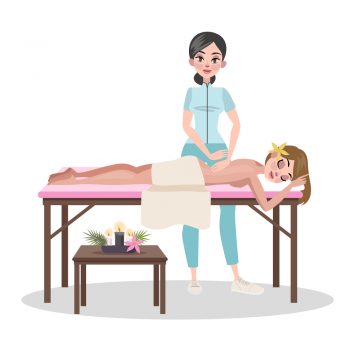Carrying a baby for nine months can be an overwhelming experience for any expectant mother. Not only is your body constantly changing, but also the physical and emotional effects of pregnancy can be incredibly straining.
However, prenatal massage therapy can help alleviate some of these symptoms and provide a sense of relaxation for mother and child.
In this article, we will explore the benefits of prenatal massages and the best time to get them during pregnancy.
Benefits of prenatal massage therapy
Prenatal massages are a great way to relieve some of the physical and emotional stress that comes with pregnancy. As your body changes over the nine months, it can cause various discomforts such as back pain, cramps, headaches, and fatigue.
Prenatal massage therapy can help ease these discomforts by improving circulation, reducing tension in the muscles and joints, and lowering the levels of stress hormones in the body.
One of the many benefits of prenatal massage therapy is that it also helps improve sleep quality. Pregnancy can cause sleep disturbances for many women, and getting a massage can help them feel more relaxed and fall asleep more quickly.
Moreover, improving sleep patterns is essential as it can help ensure a healthy pregnancy and contribute to the overall well-being of the mother and her baby.
Moreover, research has shown that prenatal massage therapy can help lower the risk of premature delivery and other complications.
Studies have found that pregnant women who have regular massages had fewer complications and health issues in comparison to those who didn’t.
The reason for this is that massages promote relaxation and reduce stress, which helps to keep the mother’s hormone levels in balance. Improving hormone balance can prevent premature labor and other health problems associated with pregnancy.
When is the best time to get a prenatal massage?
Prenatal massages are safe at any time during pregnancy, but being aware of the sensitive areas and the benefits of the different techniques will help you get the most out of each session.
In general, it is ideal to start getting prenatal massages after the first trimester, which is around the 12th week of pregnancy. During the first trimester, the risk of miscarriage is higher, and it is best to stay away from anything that could potentially harm the baby.
Furthermore, in the second trimester, which is from week 13 to week 28, the baby grows rapidly, and the mother’s body undergoes significant changes. This period is an ideal time to start a massage regimen, as the benefits of the massages can be maximized.
However, pregnant women should avoid getting massages during the third trimester as there is a risk of preterm labor. The pressure points that should be avoided during prenatal massages are the ankles, wrists, and certain points in the foot. These points may stimulate uterine contractions and cause complications during pregnancy.

Safety concerns
It is crucial that you only receive prenatal massages from a certified massage therapist. Not all massage therapists are trained in prenatal massage techniques, which means they may not understand the areas to avoid during pregnancy.
Typically, prenatal massages use light to moderate pressure, avoid any areas that may affect the uterus, and focus on the neck, back, hips, and feet.
If you have a high-risk pregnancy, complications, or any unusual symptoms, always consult your healthcare provider before receiving a prenatal massage.
Finding a qualified massage therapist
It’s recommended that you find a massage therapist who specializes in prenatal massage techniques. This is because they have the necessary skills and training required to safely administer a prenatal massage.
You can ask your healthcare provider for recommendations, check for certification and inquire about their experience working with pregnant individuals. Additionally, ensure the facility and massage setting are comfortable for you and meet your preferences.

Massage therapy alternatives to prenatal massage
If you’re unable to receive a prenatal massage or don’t feel comfortable with it, there are alternative therapies available.
This includes acupuncture, which can assist in reducing morning sickness, back pain, and induce labor. Additionally, yoga, and swimming can provide similar benefits to prenatal massage and promote overall body strength and flexibility.
Prenatal massage can be a valuable tool for any expectant mother, however, it’s crucial that you’re aware of timing, safety concerns, and potential benefits. Always consult with your healthcare provider to ensure the timing is optimal for you and your baby.
Additionally, finding a qualified massage therapist and discussing any concerns or high-risk pregnancy factors is essential. Prenatal massages have the potential to significantly ease the symptoms associated with pregnancy and provide relief for many expectant mothers.


